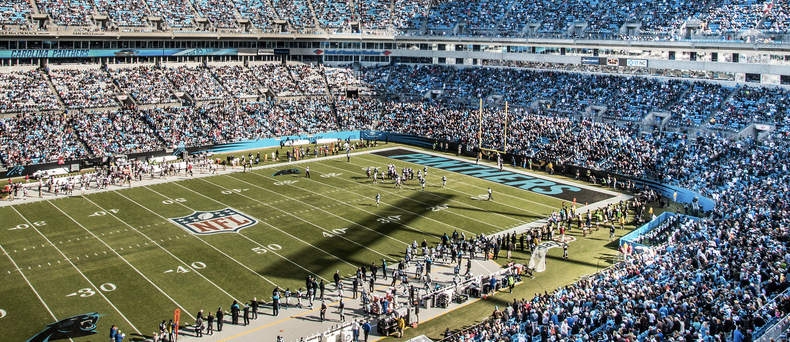NFL Suspending TV Blackout Rule For 2015 Season
The country’s most-watched pro sport might be even more watched following an announcement today that the NFL will suspend its television blackout policy for the 2015 season.
After years of resisting pressure to repeal the 1970s local blackout rule, the NFL announced it would suspend the policy that prevented the local broadcast of games if fewer than 85% of seats have been sold 72 hours prior to kickoff.
Greg Aiello, a spokesperson for the NFL, Tweeted the approved suspension of the blackout rule Monday.
NFL.com reports the league will re-evaluate the policy over the next year and determine the future of the rule during the next off-season.
Until today, the NFL remained the only league where the overwhelming majority of in-market games are aired on broadcast TV.
The league previously adjusted its rule to lower the bar for what triggers a blackout. That change allowed teams in struggling markets to continue airing games while not selling out completely. It also doesn’t put a huge burden on teams with new mega-stadiums to fill up every seat in the huge house.
While only a small fraction of NFL games are blacked out each year – no games were affected in 2014, while just two were during the 2013 season – the rule has continuously met criticism from regulators, lawmakers and fans.
Back in October, the Federal Communications Commission repealed the 1975 sports blackout rule regarding satellite and cable providers, but that change could hardly stop the NFL from negotiating private blackout deals with broadcasters.
At the time, FCC chairman Tom Wheeler said it was the leagues that truly control whether sports fans can watch games they want to watch.
“For 40 years, these teams have hidden behind a rule of the FCC,” he said. “No more… It’s a simple fact, the federal government should not be party to sports teams keeping their fans from viewing the games, period.”
Just days later, a pair of prominent U.S. Senators sent a letter to NFL Commissioner Roger Goodell expressed their concerns about the possibility of continued blackouts by the league.
Sen. John McCain of Arizona and Sen. Richard Blumenthal of Connecticut warned Goodell that the NFL could lose its antitrust exemptions, special tax status, and taxpayer-subsidized stadiums if it decided to continue with the blackout rule.
“These generous benefits were extended to leagues like the NFL in part based on recognition that sports leagues play a central role in our national culture, promote teamwork, and generate jobs and economic activity across the country,” the letter states. “But, the provision of these substantial public benefits requires that the NFL meet basic obligations to the American public and loyal fans, and this includes abandoning rules that punish those same fans.”
NFL suspends local blackout policy for 2015 [NFL.com]
Want more consumer news? Visit our parent organization, Consumer Reports, for the latest on scams, recalls, and other consumer issues.


